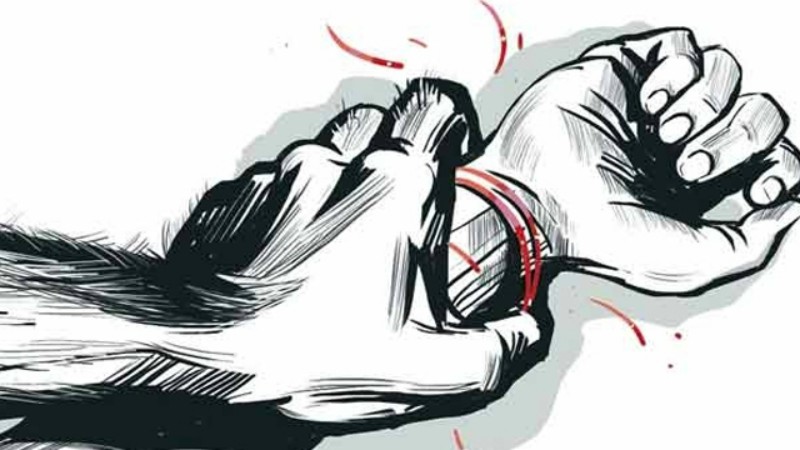Why Creating Fear for “Rape” Criminals is Necessary in India?

“Rape” the word itself sends down chill inside the spine, only the person who has gone through such wretched experience can understand its pain. Before initiating, let us go through some of the barbaric notable rape cases happened recently.
2005– Nithari Killings (Ghastly discoveries of rape and murder).
2006– Cyanide Mohan case (who used to poison women after marrying them and abscond with their jewellery).
2012– The infamous Delhi rape case (Crime that shook the whole country. In recent news, the four convicts granted capital punishment by apex court).
2013– Kamduni rape and murder case (A 20-years-old college girl brutally gang raped and murdered).
2013– Mumbai gang rape (A 22-year-old photojournalist raped near abandoned Shakti Mills compound).
2015– Kandhamal gang rape case (A 71-year-old Catholic nun was gang-raped by eight men in Ranaghat, Nadia district of West Bengal).
2016– Beer man murder case (left beer bottles beside the victim’s private part).
These are just a few instances where women, children, and teenagers irrespective of their ages were brutally assaulted and in some cases even murdered. According to the National Crime Records Bureau 2013 annual report, more than 25,000 rape cases reported in India. Out of these, most of the convicted were victim’s relative. Rape is the fourth most common crime against women in India; a woman is reportedly raped in every 15 minutes. Ignoring that, most of the cases are not even reported. This ongoing issue with violence against women raises the real and serious question of whether India is truly ready for a seat at the global table.
Do not you think this excruciating statistic is heart wrecking? Where are we going wrong? Is it a matter of law or we the people collectively who are responsible? An exponentially increase in rape crime in recent years, not only explains the severity of the situation but also unwrap the hidden mindset of the criminals. Nobody is a born criminal and we all agree to that, then why certain people become a “rapist”. In order to understand the cause of the problem, we have to understand the inefficacious social stigma attached to the society. Male dominance society or so-called “Purush Pradhan” has somehow degraded the life of women in the society. Caste based discrimination has worsened the situation. A 14-year-old Dalit girl in Delhi, who had been on life support for over a month after she was raped repeatedly and then forced to drink acid, died, becoming another echo of “Nirbhaya”. Such instance reveals the real face of the society.
Let us talk about the Section 375: Provision related to rape. In Indian penal code, Section 375 defines rape. Inadequacy in the law of rape and its failure to safeguard the right of the victim of the heinous crime, the parliament made amendments in 1983 followed by 2013 extensively, to make rape law more realistic and should not bear the convict under any circumstances, but to get a glimpse of its implementation is yet to discover. Criminals have now mastered the art to moulding law for their own advantages.
Is capital punishment is a solution to the problem? Apparently, it is a debatable topic because it is highly subjective and opinions may cause conflicts among groups. Capital punishment has unable to produce a deterrent in rape activities in India. In many cases, a convict not only misuses the law but also treat law as their own intellectual property. In order to propose a proper deterrent, the government needs to take actions towards disparaging rape-related crime and not just looking into the court judgment. However, apex court verdict on “Nirbhaya” gang rape seems justified.
It is high time now that people need to understand that women are not a subject of pleasure or property of misuse. The government needs to take a prevention measure to ensure women’s security in India. Express prohibition of sexual harassment should be notified and circulated. An inclusion of the prohibition of sexual harassment in the rules and regulations of government and public sector. An inclusion of the prohibition of sexual harassment in the standing orders under the Industrial Employment (Standing Orders) Act, 1946 by the private employers. Provision for proper work conditions for women. A strict law against rape convicts should not be on a provisional basis, it should become amendment in the constitution.
No matter whatever we do, as a society we need to change our perception towards women. Law can only impose bounds but cannot prevent crime. “The law of rape is not just a few sentences. It is a whole book, which has clearly demarcated chapters and cannot be read selectively. We cannot read the preamble and suddenly reach the last chapter and claim to have understood and applied it.” – Kiran Bedi, Joint Commissioner, Special Branch.






2 Comments